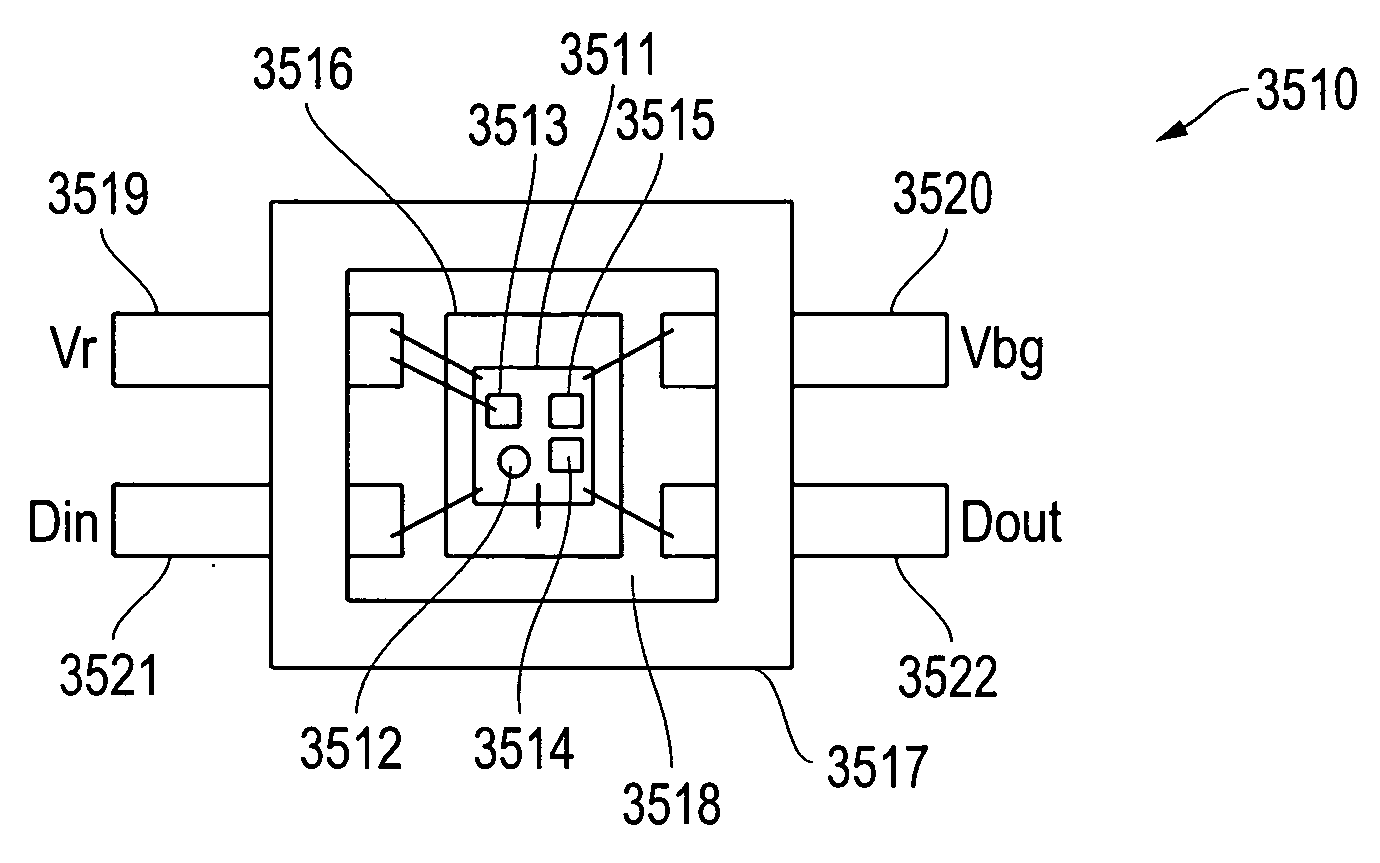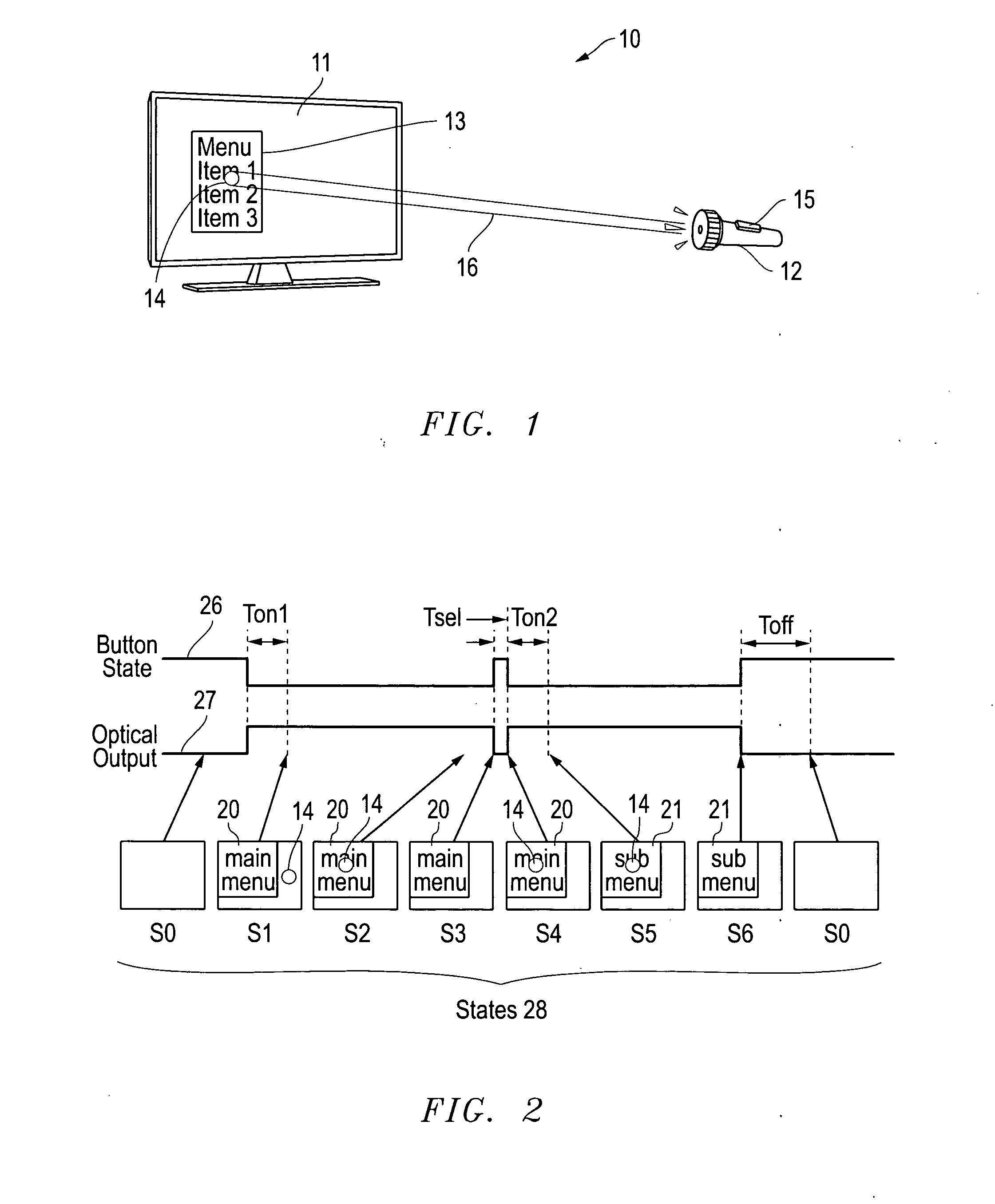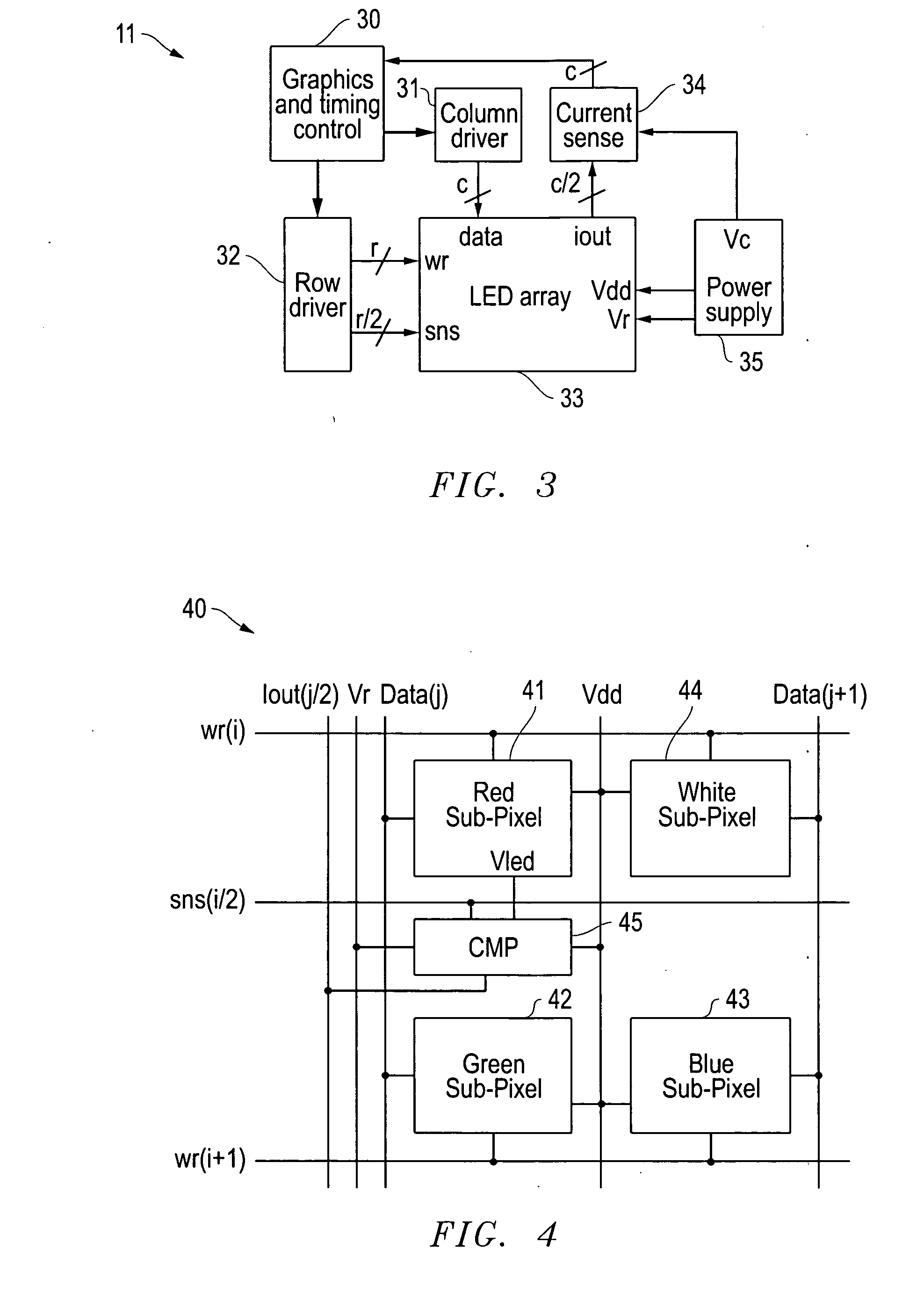Illumination devices and related systems and methods
- Summary
- Abstract
- Description
- Claims
- Application Information
AI Technical Summary
Benefits of technology
Problems solved by technology
Method used
Image
Examples
first embodiment
[0125]Display and optical pointer systems and related methods are disclosed that utilize LEDs in a display device to respond to optical signals from optical pointing devices. Various embodiments are described with respect to the drawings below. Other features and variations can also be implemented, if desired, and related systems and methods can be utilized, as well.
[0126]In part, the disclosed embodiments relate to displays with arrays of LEDs and associated pointing devices that communicate with individual LEDs in the arrays using visible light. The LED arrays can produce images directly as in LED billboards and sports arena scoreboards or can produce the backlight for LCD screens for instance. The pointing devices communicate with individual pixels or groups of pixels using a beam of light that may or may not be modulated with data, which is detected by the LEDs in the array that are exposed to the beam. Periodically, the LEDs in an array stop producing light and are configured w...
second embodiment
[0208]Display calibration systems and related methods are also disclosed that use the photo-sensitivity of LEDs to correct for variations between LEDs during initial production and over lifetime for display systems. Various embodiments are described with respect to the drawings below. Other features and variations can also be implemented, if desired, and related systems and methods can be utilized, as well.
[0209]In part, the disclosed embodiments relate to displays including arrays of LEDs that use the photo-sensitivity of the LEDs to correct for variations between LEDs during initial production and over lifetime of such a display. Such LED arrays can produce images directly as in LED billboards and sports arena scoreboards, and smaller Organic LED (OLED) displays, or can produce the backlight for LCD screens for instance. Variations in LED brightness and color can be compensated for in order for such a display to have uniform color and brightness. Such compensation, which is typica...
third embodiment
[0261]LED calibration systems and related methods are also disclosed that use the photo-sensitivity of LEDs to correct for variations between LEDs during initial production and over the lifetime of systems using LEDs. Various embodiments are described with respect to the drawings below. Other features and variations can also be implemented, if desired, and related systems and methods can be utilized, as well.
[0262]In part, the disclosed embodiments relate to using the photo-sensitivity of an LED to determine emission parameters such as intensity and wavelength. Applications for the disclosed embodiments include solid state lamps, LCD backlights, and LED displays for instance. Variations in LED brightness and wavelength should be compensated for in order for such devices to have uniform color and brightness. Such compensation, which is typically done by measuring the optical output of each individual LED with a camera or purchasing specially tested LEDs, is performed by simply measur...
PUM
 Login to View More
Login to View More Abstract
Description
Claims
Application Information
 Login to View More
Login to View More - R&D
- Intellectual Property
- Life Sciences
- Materials
- Tech Scout
- Unparalleled Data Quality
- Higher Quality Content
- 60% Fewer Hallucinations
Browse by: Latest US Patents, China's latest patents, Technical Efficacy Thesaurus, Application Domain, Technology Topic, Popular Technical Reports.
© 2025 PatSnap. All rights reserved.Legal|Privacy policy|Modern Slavery Act Transparency Statement|Sitemap|About US| Contact US: help@patsnap.com



